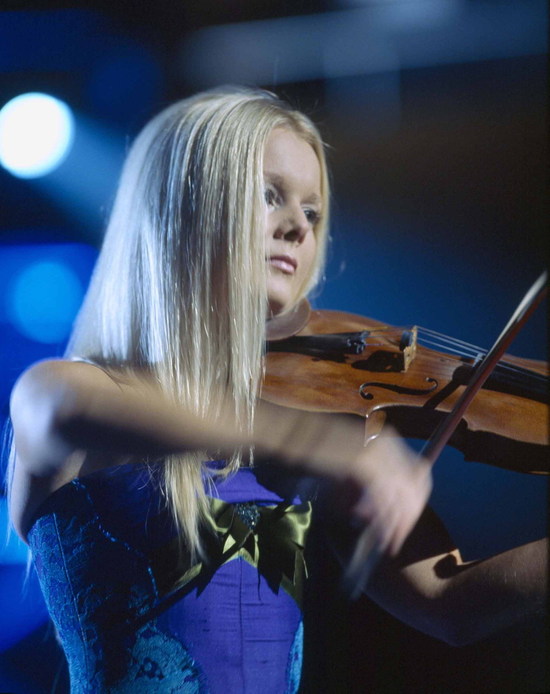바흐의 칸타타 / Jesu Joy of Man's Desiring - 예수, 인간 소망의 기쁨
바흐의 칸타타 Jesu Joy of Man's Desiring 예수, 인간 소망의 기쁨
예수, 인간 소망의 기쁨
Jesu, Joy of Man's Desiring is the English title of a chorale movement from the cantata Herz und Mund und Tat und Leben, BWV 147 composed by Johann Sebastian Bach in 1723. Written during his first year in Leipzig, Germany, this cantata is one of Bach’s most enduring works. The last movement, with its familiar chorale tune, is the piece of music most people are referring to when they mention the title "Jesu, Joy of Man’s Desiring." Today, it is often performed at wedding ceremonies and featured in movie soundtracks. Although it is the 32nd surviving cantata that Bach composed, it was assigned the number BWV 147 in the complete catalogue of his works.[1] Bach wrote a total of 200 cantatas during his time in Leipzig, largely to meet the Leipzig Churches' demand for about 58 different cantatas each year. Contrary to the common assumption, the violinist and composer Johann Schop, not Bach, composed the movement's underlying chorale melody, Werde munter, mein Gemüthe; Bach's contribution was to harmonize and orchestrate it.[2] The frequent use of arrangements of the piece in modern weddings is in no way related to its scope or Bach's intent for it. Rather, it was one segment of an extended, approximately 20-minute treatment of a traditional Church hymn, as is typical of cantatas of the Baroque period.
영어 타이틀 "예수, 인간소망의 기쁨"은 "마음과 입과 행동과 생명으로"라는 바하 칸타타 147번 합창부분인데 1723년 요한 세바스찬 바하 작품이다.
Celtic Woman - Jesu Joy of Man's Desiring (live)
Jesu, joy of man's desiring, Through the way where hope is guiding,
Original German lyrics
Jesus bleibet meine Freude, (from BWV 147, Chorale movement no. 10) Wohl mir, dass ich Jesum habe, (from BWV 147, Chorale movement no. 6)
예수는 나의 기쁨일세, 내 마음의 푸른 초장, 예수님, 나의 장신구(신부로서 신랑을 맞이하기 위한 치장), 이 얼마나, 불안과 갈망으로 채워진 세월 얼마나 오랫동안 당신을 그리워 해야 되나요! 속죄양이요, 나의 신랑이여, 하찮은 세상은 당신과 멀어져 있죠. 나의 적들을 분노케 했나요? 예수님이 나를 지켜 주시는군요. 죄악와 악마가 공포스럽게 판을 쳐도 예수님은 나를 보호하지요.
나는 전설속의 용을 거부하며, 죽음의 문턱도 거부한다, 공포 또한 무시한다, 분노, 세계, 갑작스런 공격:(하지만)나는 여기서 평화롭게 노래 부르네. 하느님의 강한 힘이 나를 보호해주네; 땅과 지옥이 아무리 난리법석을 떨어도 조용히 무너져 버리네, 당신은 나의 희망입니다, 예수는 나의 기쁨입니다. 공허한 명예도 사라지고, (세상의) 소리를 듣지 않을꺼야, 나에게는 모르는 것만 남겠지! 고통, 불명예와 죽음, 이 모든 것을 참고 견뎌야만 한다. 예수와 떨어져서는 안된다. 자만과 교만함(으로 가득찬 죄인아), (너에게는)아주 단호하다, 이 죄인아! 가라! 슬픈 영혼들이여, 내 기쁨의 주인이신 예수님이 지금 들어 가신다.
The translation of these original verses does not correspond closely to the commonest English version, with the direct translation as "Jesus shall remain my gladness" being replaced by "Jesu, joy of man's desiring". 이 번역은 일반적인 영어 번역본과 오리지날 버젼과는 정확하게 일치하지 않는다.
Conducted by Nikolaus Harnoncourt Bach - BWV 147 - 7 - Jesus bleibt meine Freude
Johann Sebastian BachJohann Sebastian Bach (pronounced [jo'han/'joːhan ze'bastjan 'bax]) (21 March 1685 O.S. – 28 July 1750 N.S.) was a prolific German composer and organist whose sacred and secular works for choir, orchestra, and solo instruments drew together the strands of the Baroque period and brought it to its ultimate maturity. Although he introduced no new forms, he enriched the prevailing German style with a robust contrapuntal technique, a control of harmonic and motivic organisation from the smallest to the largest scales, and the adaptation of rhythms and textures from abroad, particularly Italy and France.Revered for their intellectual depth and technical and artistic beauty, Bach's works include the Brandenburg concertos; the Goldberg Variations; the English Suites, French Suites, Partitas, and Well-Tempered Clavier; the Mass in B Minor; the St Matthew Passion; the St. John Passion; The Musical Offering; The Art of Fugue; the Sonatas and Partitas for violin solo; the Cello Suites; more than 200 surviving cantatas; and a similar number of organ works, including the celebrated Toccata and Fugue in D Minor. Bach was not always appreciated during his own lifetime, and he was considered to be "old-fashioned" by his contemporaries, especially late in his career during the Rococo period. Nevertheless, Bach is now considered one of the most famous and influential composers of all time.
Jesu Joy of Man's Desiring arranged by Sondahl
개인 player
japanese player
Halo 3: Cantata #147
Bach's JESU JOY OF MAN'S DESIRING at the organ by Dudlei
Winchester Cathedral Choir - Jesu, Joy of Man's Desiring
stuart smith (rock version)
|
'아름다운 음악' 카테고리의 다른 글
| 바흐 칸타타 80 번 "내 주는 강한 성이요." (0) | 2018.03.17 |
|---|---|
| 바흐 칸타타 / 하나님의 시간은 최상의 시간입니다. (0) | 2018.03.17 |
| 바흐 / 교회 칸타타 (0) | 2018.03.17 |
| 카르멘 -하바네라 (0) | 2018.03.17 |
| 모차르트 / 바이올린 협주곡 5번 가장조 KV219 "터키" (0) | 2018.03.15 |


